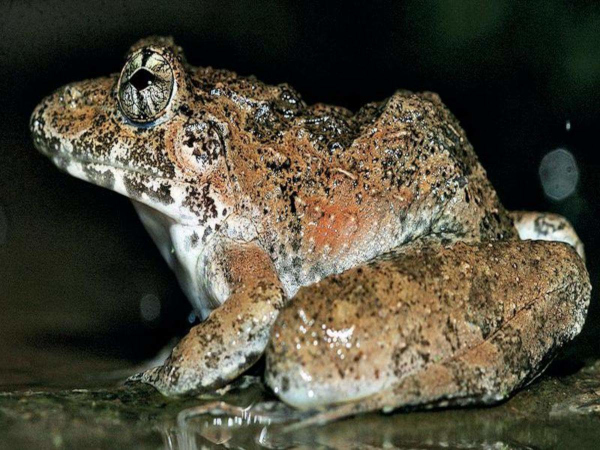Karwar: A new research has shown the presence of Kalinga cricket frogs (KCF or Fejervarya kalinga) in the Western Ghats, indicating Morphological Phenotypic Plasticity (MPP).
The research is a joint effort of researchers Amit Hegde of Sirsi, prof Girish Kadadevaru of Breeding Behaviour and Bioacoustics Lab of the zoology department of Karnatak University, and K P Dinesh of Zoological Survey of India (Pune). Their research findings have been published in the recent edition of ‘Zootaxa’, a journal of international repute.
MPP is the ability of an organism to show drastic morphological variations in response to natural environmental variations or stimuli, according to the team of researchers. In 2018, KCF was described and reported from the Eastern Ghats and also thought to be endemic to the hill ranges there.
The team has reported KCF from the central Western Ghats with considerable evidence of MPP. Hegde said: “During my field expeditions in the Western Ghats, I have encountered this species several times — it looks completely different from Fejervaraya/ Minervarya specie known in the Western Ghats. In the era of climate change, we are still discovering new species and we don’t know a lot about the species and within how they behave or adapt themselves to different biogeography ranges,” he said.
Kadadevaru said though there is a decline in the amphibian population globally, researchers in India are successfully able to explore new species and trace the geographic ranges of some rare amphibians.
“In the present study too, there is a report of the frog species, that was thought to be endemic to a few parts in the Eastern Ghats, being located in the central Eastern Ghats. However, the frog from the Eastern Ghats is phenotypically showing certain differences when compared with the population that was observed in the Eastern Ghats,” he said.
Dinesh said that only morphological character utility in the identification of the species and addressing the taxonomic uncertainties is tricky. “But the utility of genetic data and DNA bar-coding tools are handy in resolving complex taxonomic problems,” he added.
Source: Times of India
You may also like
-
New Heat-Based Approach To Cancer Treatment Can Reduce Chemotherapy Doses
-
Scientists Take A Major Step Towards Unification Of Classical & Quantum Gravity
-
India Graphene Engineering and Innovation Centre (IGEIC) Under the Vision of Viksit Bharat@2047 Launched
-
New High-Performance Gas Sensor can Monitor Low Level Nitrogen Oxides Pollution
-
Antidepressant Drug can be Repurposed for Treating Breast Cancer
